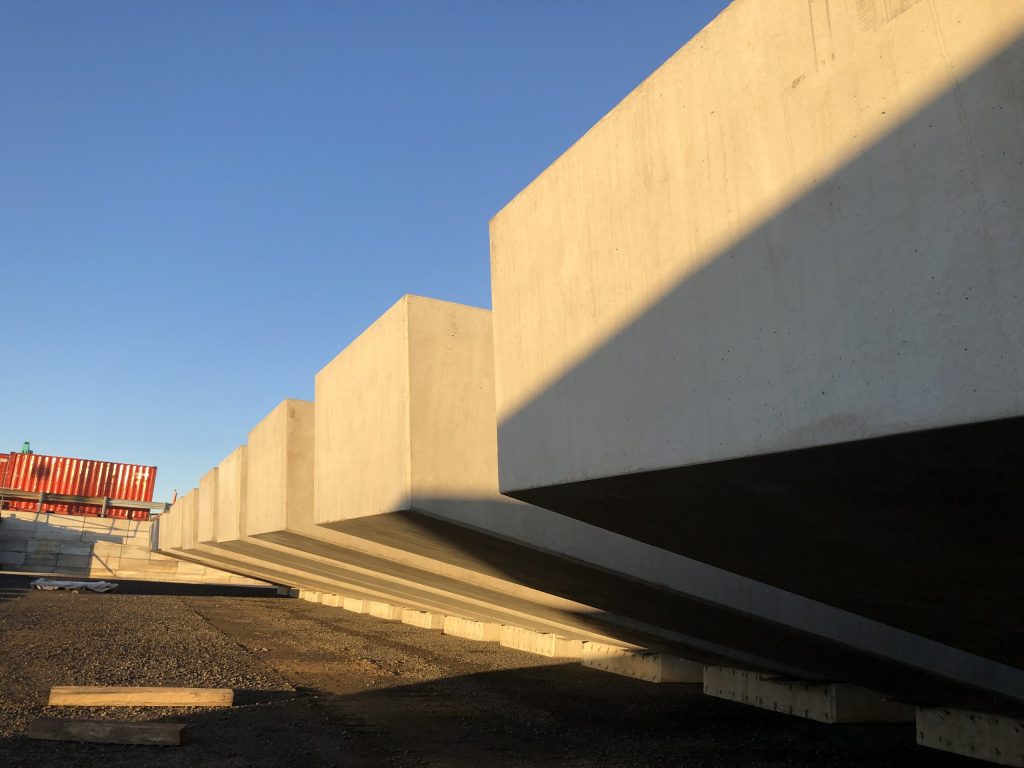Civil construction in Australia covers several different types of construction projects. The main difference between civil construction and other construction projects is that civil projects are predominantly government funded.
The civil construction industry consists of companies, individuals, and resources involved in planning, designing, and constructing civil projects targeted at making Australia a better place to live. Around 70% of the projects completed by the civil construction industry are funded by the government, with the remainder being supported by the private sector.
Civil constructions will also include roads and bridges that will connect and support commercial constructions. For example, a shopping mall is considered a commercial, but the roads, intersections, and alterations to waterways, are considered civil constructions. You’ll find there are many instances where civil and commercial constructions will work together to improve our public and private spaces.
While civil construction in Australia covers many aspects of the construction industry, companies will often only focus on one particular section and aim to do it exceptionally well. Competition plays a large part in the industry, and it is staying on budget and quality control that often sets one company apart from another.
What type of work is completed in civil construction?
Civil construction in Australia can be seen anytime you drive on roads, travel through an airport, catch a train, or sail on a boat. The civil construction industry created all the infrastructure in these transportation methods. Civil construction will also include hospital buildings and other medical facilities, pipes and filtration services to deliver water to your home, electricity generating and grids, gas pipelines and mines. Civil construction can be classified as any work designed to improve life for everyone in our community. For example, if your home is on a flood plain, civil construction can be called on to create dams, levees, and other methods to protect homes in the area.
Who works in civil construction?
Civil construction in Australia offers an excellent income, and the work is gratifying. If you are the type of person who enjoys building projects and seeing something go from an idea to the completed work, then the civil construction industry is likely a good fit.
Many different jobs are available in the civil construction industry, ranging from design, planning, equipment operators, and construction. Care for the environment is a significant concern in the industry, and more projects are being completed that take the natural environment into concern. You’ll find many new building projects are aware of their impact on local flora and fauna populations and aim to limit the impact or work to enhance the area for these populations.
The civil construction industry is progressively seeing many women taking up the challenge. There are many avenues for advancement for anyone looking to enter the industry, from labouring, transport, traffic management and control through to design, engineering and management positions.
How can people get started working in the civil construction industry?
As there are many jobs in the civil construction industry, there are several pathways a person can take to gain entry. These pathways include trade qualified, TAFE, and University.
Trade Qualified
Working in a trade is considered entry-level, and these are suited to people who enjoy working in a hands-on role. If you like working with machinery or being physically active, this pathway could be ideal. Many trades will require a person to complete a three-year apprenticeship, a mix of on-the-job training and an educational component usually completed in a TAFE environment. Many apprenticeships are advertised online, but you can approach a company directly and see if anything is available. Some companies do not advertise for apprentices as they have enough applicants sending direct inquiries.
TAFE
Studying at TAFE will give you a good idea of both on the job and management style work. A Diploma in Civil Engineering or Civil Construction can take 1-2 years, depending on the course requirements. You may find that some TAFE courses expect you to complete some on the job training, and you may be required to find a business willing to offer you a placement. After successful completion, you may be qualified to work as a project manager, estimator, or in other management positions.
University
Studying at university is an excellent option for people who excel at mathematics and physics and are considering a degree in civil engineering. Many degrees are completed over four years, and it may involve some on the job experience with internships. Graduates can apply for senior management roles and other jobs in the civil construction industry.
How safe is working in civil construction?
If you’re planning on working in civil construction, then it is likely you’ll be exposed to heavy machinery and situations that are physically challenging. However, the civil construction industry is very concerned about the safety of its workers.
As most projects are paid for through government funding, and they are exceedingly careful about worker safety. At any worksite, there are safety officers employed to monitor and enhance the safety aspects of the site. Visitors, contractors, and other workers who are not following the guidelines can be asked to leave and may be held accountable for any onsite issues they cause.
What is it like to work in civil construction in Australia?
Working in the civil construction industry can be incredibly rewarding, and there are many avenues for advancement if a worker would like to move into higher-paid positions. As civil construction commonly focuses on public buildings and projects, workers are involved in improving public spaces.
The work completed in civil construction is varied and can be carried out in all environments. Civil construction is essentially a team-based working situation, making it ideal for people who enjoy working alongside others.
How does NVC Precast support the civil construction industry?
At NVC Precast, we are determined to meet the industry’s expectations and continue to supply a high level of materials. As a precast concrete supplier, we can create and deliver all types of precast elements that suit a variety of civil construction projects in Australia. Read our latest article about the best precast concrete suppliers
NVC Precast was founded in 1989 (as North-Vic Constructions). In the past 30 plus years, we have grown into a well-regarded and respected business for delivering quality projects and working in conjunction with others to complete projects within set timeframes.
When NVC Precast was established, our primary focus was on piling and bridge construction. However, in the past ten years, we have increased and invested in our business to deliver more components while offering the same level of quality. The main driving factor for the growth of NVC Precast was the choice to start creating prestressed beams, which required a significant investment in infrastructure and equipment.
NVC Precast is located in Kilmore, Victoria, and we’ve been supporting the local community, with over ninety percent of our staff living in the local region. We are a significant supplier of precast products for Victoria and Southern NSW.

